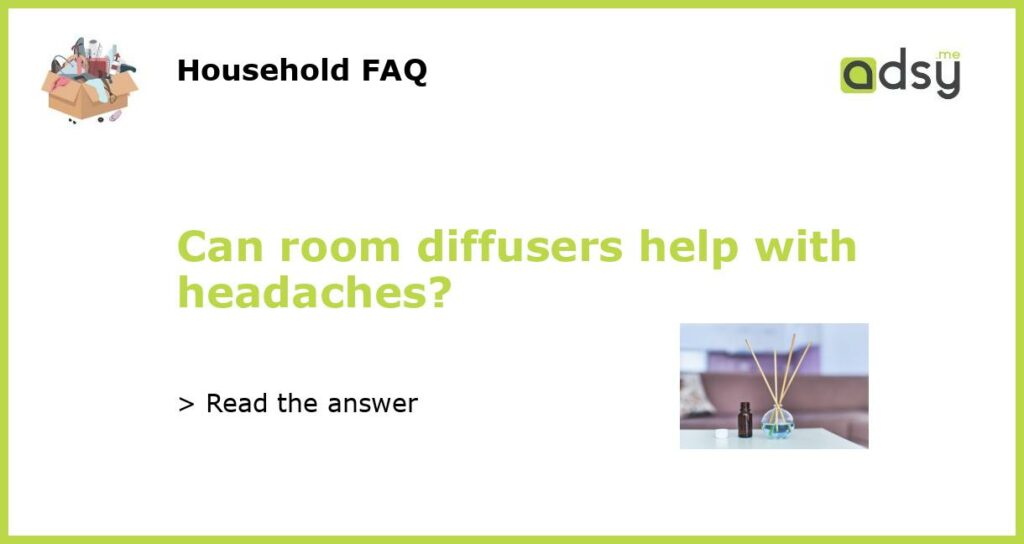Understanding Headaches
Headaches are a common ailment that can be caused by a variety of factors, including stress, tension, dehydration, and even certain foods. They can be debilitating and significantly impact a person’s quality of life. Many people are always on the lookout for natural remedies to alleviate their headaches, and one option that has gained popularity in recent years is the use of room diffusers.
How Room Diffusers Work
Room diffusers are devices that disperse essential oils into the air. These oils are derived from various plants and have been used for centuries for their therapeutic properties. When the oils are diffused, they release aromatic compounds that can be inhaled. It is believed that these compounds can have a positive impact on the body and mind, including relieving headaches.
Essential Oils for Headaches
There are several essential oils that are commonly recommended for headaches. Peppermint oil is known for its cooling and calming effects, which can help reduce tension and ease headache symptoms. Lavender oil is often used for relaxation and can help alleviate stress-related headaches. Eucalyptus oil has a refreshing scent that may provide relief from sinus headaches. Other oils such as chamomile, rosemary, and frankincense are also believed to have headache-relieving properties.
It is important to note that essential oils should be used with caution and under the guidance of a qualified professional. Some oils may be irritating or have potential side effects, especially for individuals with allergies or sensitive skin. It is recommended to perform a patch test before using any new essential oil and to dilute them properly before diffusing.
The Science Behind Room Diffusers
While there is limited scientific research specifically on the effects of room diffusers on headaches, there is evidence to support the potential benefits of using essential oils. A study published in the European Journal of Pain found that inhaling lavender essential oil reduced the severity of migraine headaches in a small group of participants. Another study published in the Journal of Alternative and Complementary Medicine showed that a blend of essential oils, including peppermint and eucalyptus, helped decrease the frequency and intensity of tension headaches.
It is believed that the aromatic compounds in essential oils can stimulate the olfactory system, which is connected to the brain’s limbic system. The limbic system is responsible for emotions, memory, and pain perception. By inhaling essential oils, it is thought that these compounds can directly affect the limbic system and potentially alleviate headache symptoms.
Using Room Diffusers for Headaches
If you are considering using a room diffuser to help with your headaches, there are a few things to keep in mind. First, it is important to choose high-quality essential oils from reputable sources to ensure their purity and efficacy. Diluting the oils properly and following the instructions provided by the manufacturer is also essential for safe and effective use.
Additionally, it may be helpful to experiment with different essential oils and blends to find the ones that work best for you. Some individuals may find relief with lavender oil, while others may prefer peppermint or eucalyptus. It is a personal preference, and what works for one person may not work for another.
Lastly, it is important to remember that room diffusers should not be used as a standalone treatment for chronic or severe headaches. If you are experiencing frequent or severe headaches, it is important to consult with a healthcare professional to determine the underlying cause and develop an appropriate treatment plan.
The Bottom Line
While room diffusers may provide some relief for certain types of headaches, their effectiveness can vary from person to person. Some individuals may find that diffusing essential oils helps alleviate their headache symptoms, while others may not experience any significant benefits. It is important to approach the use of room diffusers as a complementary therapy and not as a substitute for medical advice or treatment. Consulting with a healthcare professional and using essential oils under their guidance is always recommended for optimal safety and efficacy.






